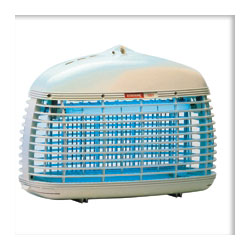Insect Repellents
As the name suggests, insect repellents ward off insects, thereby protecting you from insect bites.
Normally, insect repellents are specific substances you need to apply on the exposed parts of your skin. Such
repellents are most effective against insect-borne diseases like malaria, dengue fever, Lyme disease, bubonic
plague, and West Nile fever.
Types of Insect Repellents
There are different types of insect repellents available. Some of them are made from natural sources like
plants while some contain chemicals and are made synthetically. Normally synthetic repellents prove to be more
lasting and effective. Yet, there are few plant-based repellents like natural herb mosquito coil and essential oil
candle. These plant-based repellents are much better than synthetic repellents.

Common insect repellents include:
• DEET (N,N-diethyl-m-toluamide)
• Neem (Azadirachta indica) oil
• Icaridin or picaridin,
• Oil of lemon eucalyptus
• Nepetalactone, popular as ‘catnip oil’
• Citronella oil
• Permethrin
• Basil
• Camphor
• Castor oil
• Thyme
• Peppermint
• Fennel oil
• Rosemary
Working of Insect Repellents
Insect repellents do not kill insects. Instead, these repellents reduce your exposure to harmful insects.
Most repellents work by masking your body odor. Applying insect repellents on your exposed skin changes your body
odor to the insects in such a way that insects repel at your odor and hence move away. You thereby remain safe from
outbreak of any insect-borne diseases.
Normally, insects, bugs, and mosquitoes use their feelers to identify human odor. As repellents
change your body odor and you remain protected from insects, it is necessary to reapply repellents soon after a
swim or if you sweat excessively. Most insect repellents deliver results only over a specific radius. Hence, even
if you are wearing any repellent, you can see bugs and mosquitoes flying near you. However, they do not bite
you.
Normally, insect repellents having a higher percentage of active ingredients like
N-diethyl-meta-toluamide or DEET, Picaridin, or KBR 3023 provide longer hours of protection. Permethrin is a
specific exclusion. This repellent is actually a contact insecticide but proves effective against insect bites.
Precautionary Tips
Most insect repellants are safe for use. You can even use these repellents on skin of children. However,
take care to apply only small amounts and preferably do not apply on hands of children, as it could lead to
accidental ingestion or eye contact. Also, do not allow children to apply repellents by themselves. Keep repellents
out of the reach of children.
You can apply sunscreen after applying insect repellent or the other way round. It is best to
follow instructions for application as specifically mentioned. Nonetheless, do not combine sunscreen and insect
repellent in a single bottle as both are two completely different substances. Again, you cannot apply repellent as
frequently as you use sunscreen.
Sometimes, repellents could cause skin irritation. You should immediately restrict use of the specific
repellent. You can try using repellent with lesser concentration of chemical. If irritation persists, it is best to
stop use of repellent completely. Pregnant women should take care to avoid exposures to insect repellent as much as
possible as the fetus may be vulnerable.
You should read the label of your repellent product carefully before use. Labels and directions
for use differ across countries. Manufacturers specifically issue warning labels on repellents that are not safe
for use on children.
You need to protect yourself against insect bites through use of insect repellent specifically at
dusk and dawn as this is the main feeding time for most insects, bugs, and mosquitoes.
Read more on insect repellents:
- Ant repellents
Ants are a tremendous nuisance - and repelall.com provides information on how to repel ants an what are efficient ant repellents.
- Bee repellents
Read about bee repellents as commercial products that protect you from bees and about various homemade remedies that could act as an excellent bee repellent.
- Bed bugs repellents
Read about bee repellents as commercial products that protect you from bed bugs and about various homemade remedies that could act as an excellent bed bugs repellent.
- Chigger repellents
Read about chigger repellents as commercial products that protect you from chiggers and about various homemade remedies that could act as an excellent chiggers repellent.
- Flea repellents
Read about flea repellents as commercial products that protect you from fleas and about various homemade remedies that could act as an excellent flea repellents.
- Fly repellents
Learn about fly repellents that protect you from flies and about various homemade remedies that could act as an excellent fly repellents.
- Mosquito repellents
Mosquitos are both dangerous and annoying. Regular use of mosquito repellents can help you enjoy a healthy life without fear of such diseases.
- Moth repellents
Why is it important to know good moth repellents? Because moths eat your clothes, fly in your face, give birth in your food, and no matter how many you kill they still keep coming back.
- Roach repellents
Why is it important to know how to get rid of roaches or a good roach repellents? Because cockroaches are a great nuisance and no matter how many you kill they still keep coming back.
- Tick repellents
Ticks are common in places of thick vegetation and you would require a tick repellent to safeguard your pets and yourself from tick bites.
| 
 Delicious
Delicious Digg
Digg Facebook
Facebook Google Bookmarks
Google Bookmarks Reddit
Reddit Stumbleupon
Stumbleupon Yahoo My Web
Yahoo My Web Spurl
Spurl Wists
Wists Newsvine
Newsvine Furl
Furl Ma.gnolia
Ma.gnolia Fark
Fark